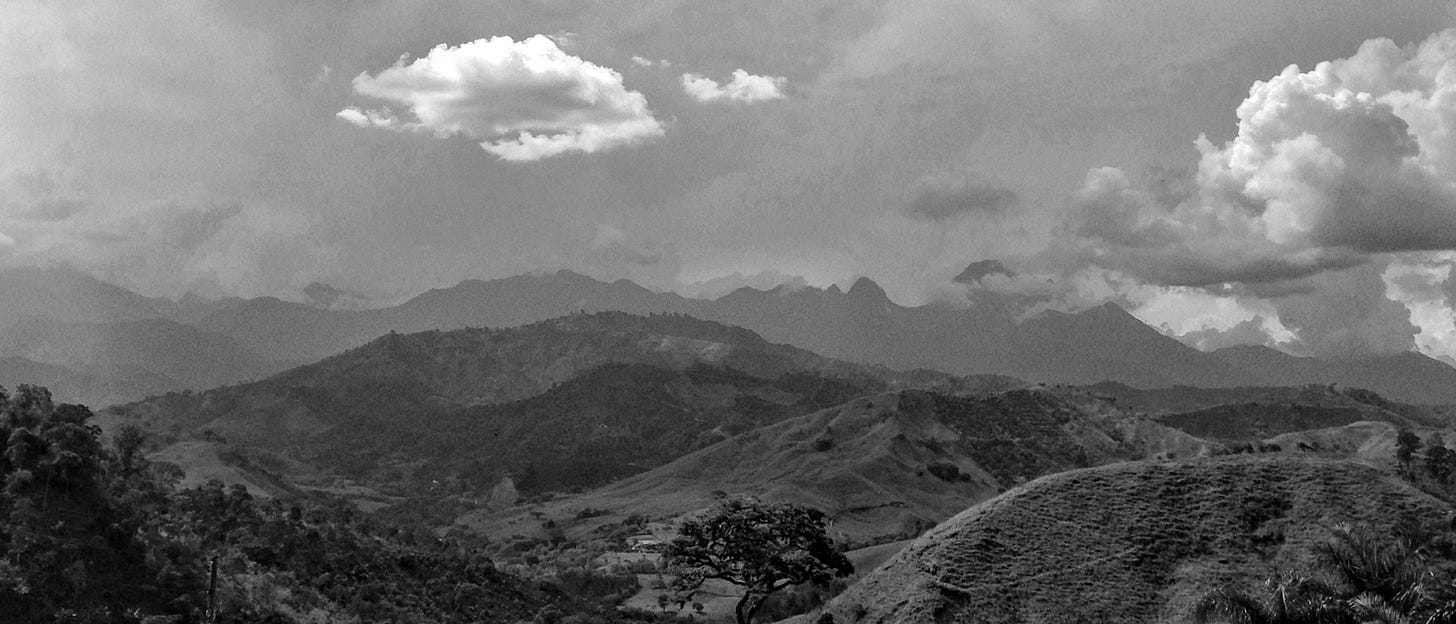Coffee News Roundup: Week Ending December 24th
This week, big coffee brands don't pay a living wage throughout their supply chain (surprise), a coffee company is selling NFTs of its cafe artwork, & the Starbucks unionization drive reaches Seattle
Hello and welcome to a holiday-delayed Coffee News Roundup. Lots to get through (isn’t there always?) so let’s begin.
New Study Finds The Largest Coffee Brands Aren’t Paying Producers A Living Wage - Via Sprudge
In news that will surprise literally nobody, it turns out that huge coffee conglomerates don’t pay a living wage to the producers on whose backs the entire industry is built.
New research from the Columbia Center on Sustainable Investment found that, of the ten large companies they investigated—Nestlé, JDE Peet, Smuckers, Starbucks, Lavazza, Tchibo, Keurig, Costco, Tata, and Unliver—“none can guarantee living income or living wages within their supply chains.”
The report notes that while all ten brands have company-specific sourcing policies and sustainability commitments or projects relevant to their producers, “none are able to guarantee that all viable producers in their supply chains earn a living income.”
In eight of the ten coffee-producing countries the researchers studied, the average coffee income was at or below the poverty line—only Brazil and Vietnam were above. In Uganda, the average coffee producer earned just $88 per year from coffee, “relative to living income reference values that range from over $2,000 to nearly $6,000.”
It’s a fascinating report, and a lot more readable than it appears, and calls for more transparency—and higher price premiums—from these enormous (and very financially successful) companies. Other recommendations include longer-term relationships with suppliers, to ensure stability and risk-mitigation, as well as minimum prices or an emergency relief fund to support producers during times of low coffee prices. Pretty straightforward stuff, really.
Black Sheep Coffee Sells NFTs Of Its Wall Art - Via The Times
This article is in The Times, and thus behind a paywall, but from the intro (and from an Instagram post announcing the scheme) we can glean that Black Sheep Coffee, a specialty chain with stores across London and beyond, is jumping on the NFT bandwagon with an upcoming “drop” of several digital art pieces based on murals and artworks from the walls of its cafes.
What is an NFT, you might wonder? Let’s let The Times tell us: “NFTs, or non-fungible tokens, are unique digital items that can be bought and sold online. They use blockchain technology to keep a digital record of ownership, similar to cryptocurrencies. Most NFTs are bought using ether, the currency supported by the ethereum blockchain.”
Yeah, that.
NFTs are also, depending on who you ask, either a scam or a pyramid scheme or possibly something worse. As they’re part of the cryptocurrency craze, they’re certainly bad for the environment—ironic when you consider the breathless hype that surrounded Black Sheep Coffee’s eco credentials a couple of years ago.
Read the full story here, although it’s paywalled :(
Colombia-Based Green Coffee Company Closes US$9.6 Million Funding Round - Via Daily Coffee News
Here’s some more news that seems pretty harmless on the face of it, but gets weirder the more you read.
A coffee production company in Colombia has raised nearly $10 million in new funding—which is great. Good for them. According to their website, Green Coffee Company (GCC) is the largest Rainforest Alliance-certified producer in Colombia and is working to ensure all its employees are in formal employment, which includes healthcare and pension plans. Excellent.
GCC is also well on its way to being the largest single coffee producer in Colombia—with its latest land acquisition it will sit at #2—and is owned by an “alternative investment firm”. This company, whose investors, according to Daily Coffee News, are mostly “high net worth” individuals from the United States (that’s all the info we’re given), has “a projected 2025 exit sale or IPO” of GCC.
That’s, what, three years? Not even time to get a harvest from the coffee trees they say they’re planting. What happens to the farms, and the people who work there, when a sale or IPO happens?
Container Shortage Sparks Coffee Shipping Experiment - Via Bloomberg
A few weeks ago we discussed the use of “big bags” as an alternative to containerized shipping in the midst of a container shortage and general supply chain woes (still no pictures available of the big bags).
Now, some exporters are trying another approach: break-bulk shipping, which is basically just throwing bags of coffee into a ship and hoping everything goes okay. Well, it’s probably more complicated than that, but you get the idea.
Olam is the company chartering the ship, which is sailing from Sumatra to New Orleans, and they seem to think it’s the wave of the future—sort of, anyway. “If you speak to some of the older traders, it was the late 80s, or perhaps the early 90s, when they last did it, so this is really a new frontier kind of thing for us as well,” according to Olam’s senior vice president for coffee, Manish Dhawan.
Good luck getting all those individual coffee sacks out of the ship, is all I have to say—another break-bulk shipment from giant Brazilian cooperative Cooxupe included 108,000 bags of coffee.
More Headlines
Brazil Lowers Coffee Output To Keep Prices High In 2022
Westrock Coffee Announces $100+ Million in Facility Expansions
The Week In Coffee Unionizing
Unionizing’s coming home, at least for Starbucks. Joining what is quickly becoming a wave of organizing at its stores across the country, a location in the company’s home town of Seattle has become the latest to file for elections.
“We do not see our desire to unionize as a reaction to specific policies, events, or changes, but rather a commitment to growing the company and the quality of our work. We see unionizing as a fundamental and necessary way to participate in Starbucks and its future as partners,” the workers wrote in a letter to Starbucks CEO Kevin Johnson.
John Logan, a professor of labor and employment studies at San Francisco State University, told the Seattle Times that this move was “significant”, and an indication that the labor movement at the chain was spreading: “It’s not something Starbucks is going to be able to contain to these few stores in Buffalo.”
Meanwhile, Starbucks has announced that it will negotiate “in good faith” with the newly-certified union workers at its Elmwood store in Buffalo. In response, Starbucks Workers United called on the company to begin negotiations as soon as possible: “As Starbucks makes these comments we hope they will be truthful and respect the law by sitting down at the bargaining table with the partners who formed this union,” the group said.
Is Coffee Good For You?
Nothing new this week, and as it’s the holidays let’s just go with the current consensus that coffee is in fact good for you, and pour another cup.
What To Read
Kenya And “The Decline Of The World’s Greatest Coffee” by Christopher Ferran
The Unionized Starbucks In Your Neighborhood by Nelson Lichtenstein
Until next week, drink good coffee. Have another piece of stollen. You deserve it.






